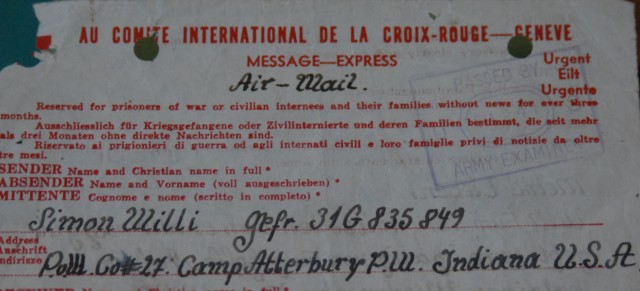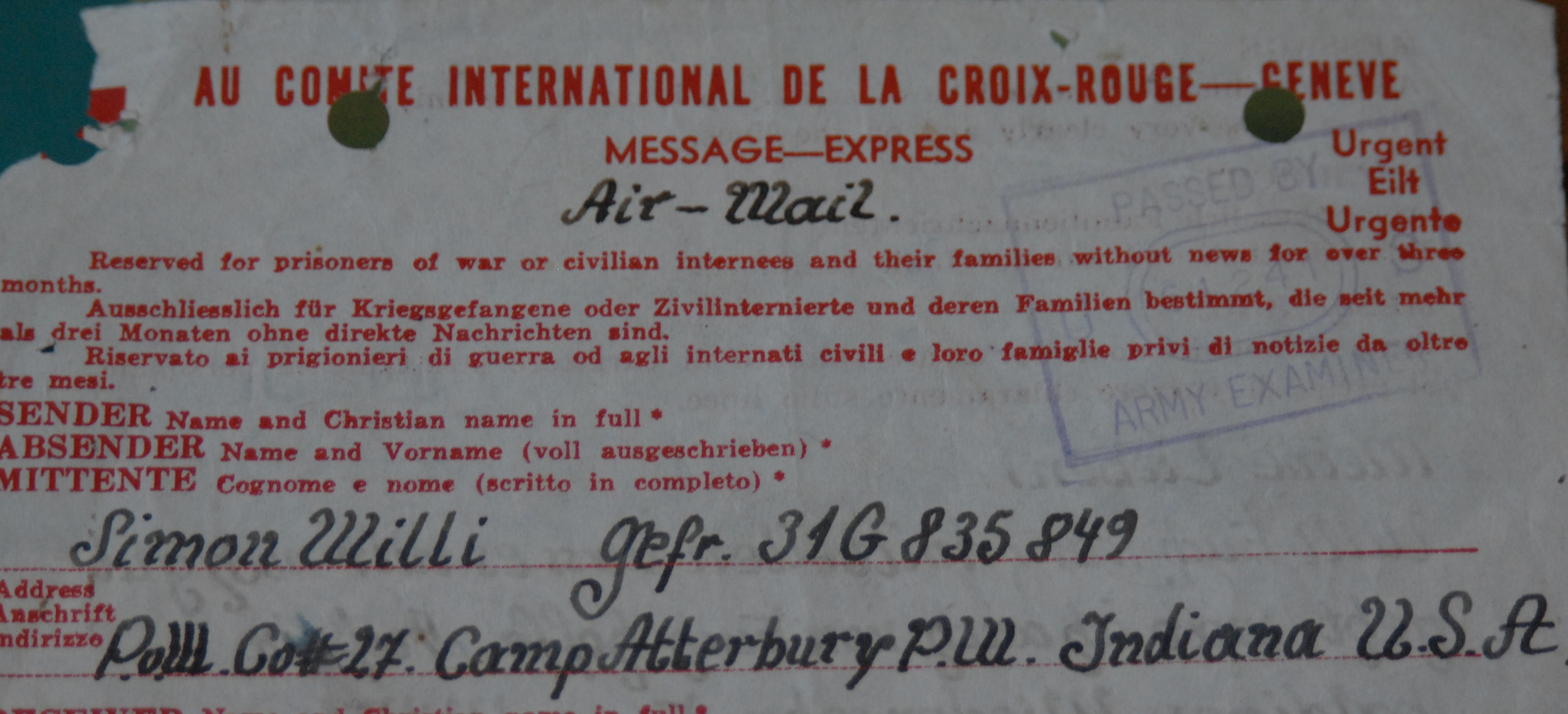Peter Simon visited Fort Knox last week.
His home is in Doerrenbach, Germany, but he came to Fort Knox to follow his father's footsteps.
The senior Simon was a German paratrooper who taken as a prisoner of war in France in the closing months of World War II. Willi Simon was ultimately shipped to the U.S., where he spent a brief time at Camp Atterbury, Ind., before his transfer to the POW camp at Fort Knox, where he remained until 1946. He would have stayed in the U.S. if he had been allowed - and his desire to be in the U.S. grew when he was returned to Europe to spend a few months in a French detainment camp, where his treatment was much worse than that he received in the U.S.
"Compared to how Germans were treated in the Russian POW camps, this was a paradise," said Sgt. Maj. Karl Grenzebach, with the German Liaison Office at Fort Knox, who served as translator for this interview.
According to Peter, Willi's time at Fort Knox was often spent working on nearby farms picking tomatoes, beans, and tobacco. He recalled being on Johanna Farm where he discovered a cross while clearing land and wondered why it was there, but assumed the only plausible explanation was that it was from an abandoned cemetery.
His treatment at Knox was not harsh and Willie even earned a little money with his farm work. He was well-fed, well-clothed and well-treated, Peter said. He even has a few mementos of his father's time in Kentucky --a leather wallet (stamped Fort Knox) and a small New Testament with an inscription on the inside cover: "Prisoner of War Camp, Fort Knox, Ky." The Bible had been translated into somewhat stilted German.
In his spare time, Willi enjoyed wood carving and often gave his handiwork to the guards at the POW camp.
Eventually, Willi was able to return to his hometown of Saarbruecken and married in 1947. His son Peter was born in 1951. Although he had begun working on a novel to discuss his war years, Willi never completed the novel and did not share his experiences with his family. His son Peter only learned of his father's time as a POW after Willi's death in 2001.
As an amateur genealogist, Peter began researching his father's war experiences from clues he found among his father's personal papers as well as the unfinished novel. Unfortunately, much of the novel appears to be fiction, so Peter had a hard time distinguishing facts from fantasy.
He did know, however, that his father worked in the Brandenburg, Ky., area often, so he made it a point to visit the river town during his trip to Fort Knox. Kennedy Street is mentioned in his father's writings, and Peter was encouraged to find that a Kennedy Street still runs through Brandenburg.
Unfortunately, the Johanna Farm could not be found and Peter has surmised the name must have been fictional. He was very disappointed because he had hoped to learn more about the cross his father was so fascinated by.
The book finally completed by Peter is titled "The Forgotten Cross of Kentucky." He published the novel in 2007 and it won a literary competition in Germany. An English version is to be released later this year.
Another of the documents that led Peter to the area was a Red Cross communication sent to Willi's family documenting that he was alive and in the U.S. Previously they had been informed their son was missing in action, which usually meant dead. The Red Cross form originated at Camp Atterbury, where Willi was first imprisoned.
Like so many others, the Simon family suffered in the war. Conscripted into the German army, Willi became a POW and was given up for dead, while his uncle fled to Germany to keep from being conscripted by the French (the area they are from in the Southwest corner of Germany has bounced back and forth from France to Germany for centuries).
The uncle was politically active -possibly a socialist, Peter said - and was sent to a concentration camp, where he died.
"It was very emotional for (Peter) to visit Brandenburg and know he was somewhere his father had been," Grenzebach said.
Peter Simon would love to learn more about his father's time and work in Kentucky during his imprisonment. He's hoping someone will read this article and recognize his father's initials on some woodcarving; he always signed his work with a "W.S."
Simon would be grateful for general information about the POW camp at Knox, the type of work done there, and any memories of that period.
"Geneology is all about collecting the pieces and finally fitting them all together to make the puzzle," Simon said.
Contact Simon through his e-mail at peter.simon@Peter-Axel-Simon.de


Social Sharing